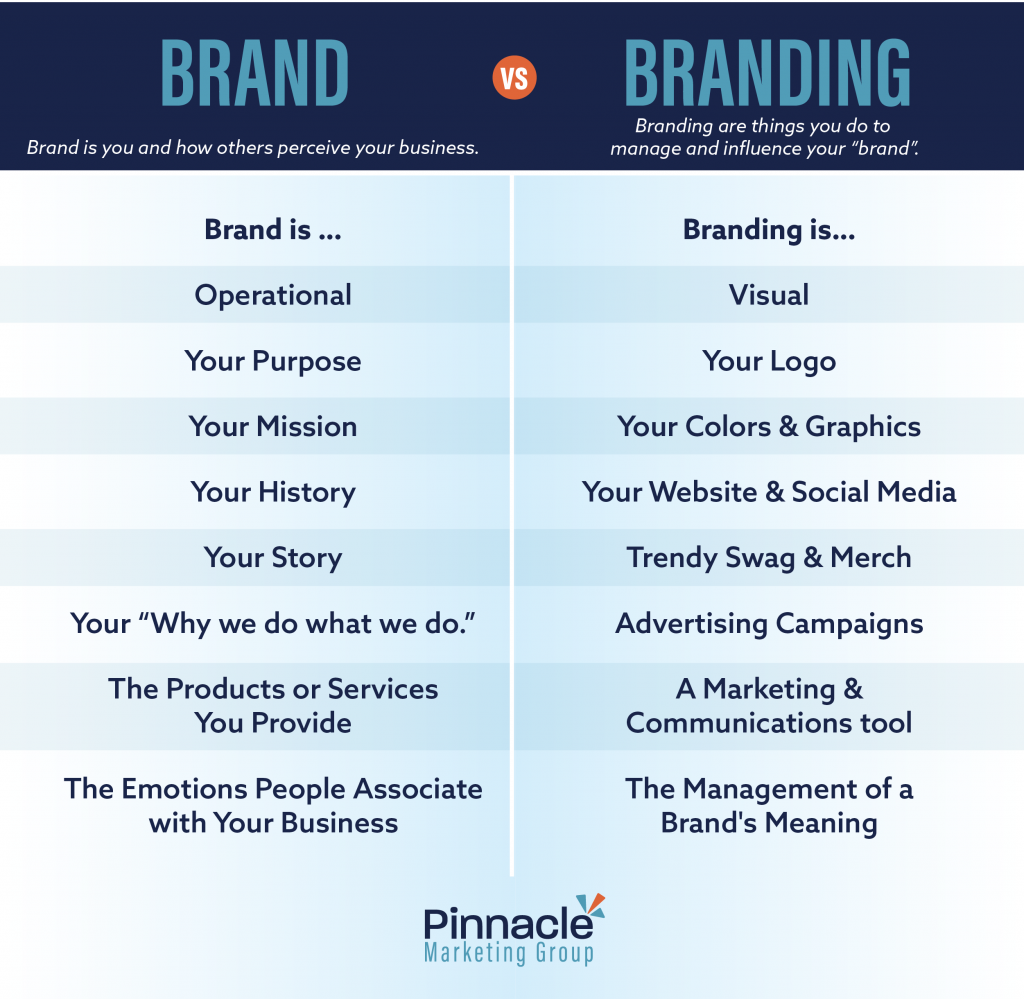Why Robust Branding is Essential for Business Survival and Development
Why Robust Branding is Essential for Business Survival and Development
Blog Article
Why Robust Branding Is Important for Market Leadership
A distinct brand identification not only establishes a company apart from its opponents however additionally cultivates trust fund and emotional links with consumers. What are the certain techniques that can boost a brand to this esteemed condition?
Recognizing Brand Identification
Regularly identifying the significance of brand name identity is vital for any kind of organization aiming to achieve market management. Brand name identity incorporates the visual components, messaging, and overall understanding that distinguish a business from its rivals. It serves as a structure for just how customers connect and perceive with a brand, playing a crucial duty fit their assumptions and experiences.
A well-defined brand identity interacts the core worths and goal of an organization, creating an emotional link with its target market. Aspects such as logo designs, color pattern, typography, and tone of voice should line up cohesively to communicate a regular message throughout all systems. This uniformity enhances brand name acknowledgment and cultivates customer loyalty.
Organizations that prioritize a strong brand name identification can successfully distinguish themselves, build a favorable online reputation, and cultivate a faithful customer base. Inevitably, a durable brand identity is essential for browsing competitive landscapes and sustaining lasting success.
Structure Client Trust
A solid brand identity prepares for developing customer trust, a vital part in accomplishing market leadership. Trust fund is not just a psychological action; it is a calculated asset that can dramatically affect purchasing choices and brand commitment. Companies that grow transparency, integrity, and consistency in their messaging and activities foster a complacency among customers.
To build this depend on, brands need to deliver on their assurances. This implies ensuring that item quality satisfies customer expectations which service experiences are responsive and favorable. In addition, constant interaction reinforces dependability; when consumers know what to expect which their issues will certainly be dealt with, their self-confidence in the brand strengthens.
Social proof also plays a crucial function in establishing count on. Favorable evaluations, testimonials, and endorsements from reliable sources enhance a brand's credibility and can sway prospective clients. Moreover, involving with consumers through social platforms and addressing their issues publicly demonstrates responsibility and commitment.
Distinction in Open Markets
In today's jampacked marketplace, differentiation is important for brands seeking to stick out and catch consumer attention. With countless options readily available, customers are often overloaded, making it vital for brands to establish an unique identification that reverberates with their target audience. This differentiation can manifest via numerous aspects, including product attributes, rates methods, consumer service, and brand messaging.
Effective differentiation involves not just determining what makes a brand one-of-a-kind however likewise communicating these differences clearly and consistently. Brand names have to verbalize their value proposition in a manner that addresses particular consumer requirements and preferences. A business may concentrate on sustainability, ingenious innovation, or personalized client experiences to carve out a specific niche in a competitive landscape.
Additionally, brands need to consistently evaluate their affordable environment to adapt and improve their differentiation approaches. This proactive technique ensures that they stay attractive and pertinent to consumers as market dynamics progress. Inevitably, robust branding that highlights distinction not only fosters brand name commitment but likewise places a firm as a leader in its industry, leading the way for continual growth and market prominence.
Psychological Connections With Customers
Emotional links serve as a powerful driver in structure lasting relationships between brands and consumers. It cultivates commitment that goes beyond simple transactional interactions when customers resonate with a brand on an emotional degree. Brand names that efficiently stimulate emotions-- whether with storytelling, shared worths, or genuine involvement-- develop a feeling of belonging for their clients.
These psychological ties can dramatically affect acquiring choices, as customers are typically driven by feelings as opposed to reasoning. A brand that lines up with customers' goals or addresses their pain points can grow a deep-seated commitment that leads to repeat organization and favorable word-of-mouth referrals.
Moreover, emotional branding allows firms to separate themselves in congested markets. By tapping into the views of their target market, brands can carve out an unique identification that reverberates deeply, making them unforgettable and favored over rivals.
In an age where consumers are bombarded with choices, click here for more info a strong redirected here psychological connection can be the choosing factor in brand name preference. Thus, prioritizing psychological interaction is not simply a marketing method; it is a strategic important for brand names seeking to develop meaningful connections and boost client retention.
Long-Term Business Success
Sustainable organization growth pivots on the ability to cultivate robust branding techniques that reverberate with consumers gradually. A solid brand not just differentiates a business from its competitors yet also promotes commitment and trust fund among clients. This lasting relationship is necessary for ensuring repeat service, which dramatically contributes to profits security and growth.
In an increasingly affordable industry, brand names that communicate a constant and clear message are more probable to prosper. This uniformity enhances brand identity, making it simpler for consumers to choose the brand and recall over others. Robust Branding. Therefore, a reputable brand name can adjust to market adjustments without shedding its core significance, permitting advancement without estranging loyal customers
Moreover, durable branding develops a system for consumer involvement, wherein organizations can collect responses and adjust their offerings as necessary. This repetitive procedure not only improves client satisfaction but also builds a community around the brand, cultivating a feeling of belonging.
Verdict

Organizations that prioritize a solid brand name identity can properly distinguish themselves, construct a positive online reputation, and cultivate a dedicated customer base.A solid brand name identity lays the foundation for constructing client trust fund, an essential part in attaining market management. A solid brand not just distinguishes a firm from its rivals but likewise cultivates commitment and count on amongst consumers. As an outcome, a reputable brand can adapt to market modifications without shedding its core significance, allowing for advancement without estranging over here loyal clients.

Report this page